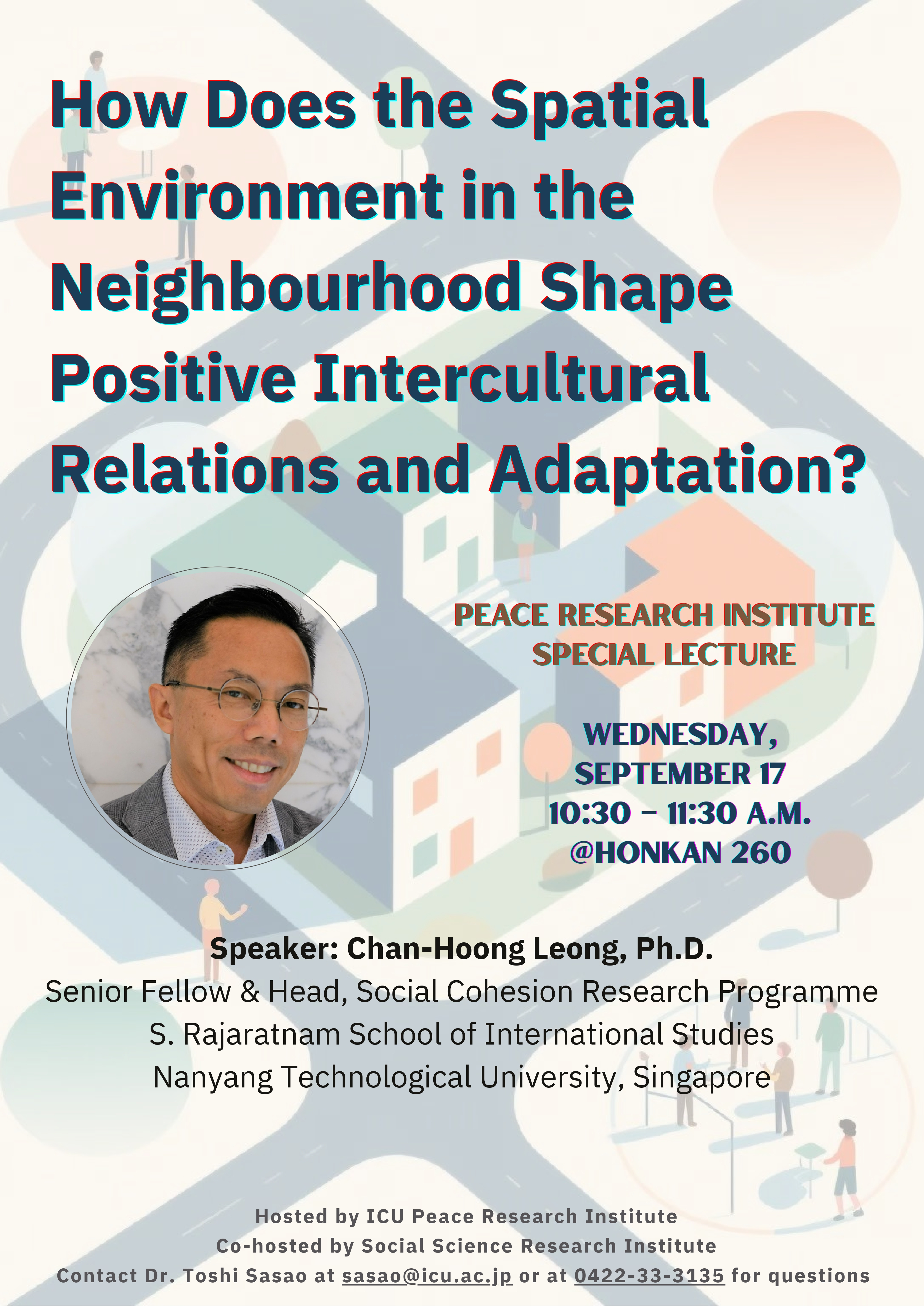[Special lecture] How Does the Spatial Environment in the Neighbourhood Shape Positive Intercultural Relations and Adaptation?
Saturday,September 13,2025Categories: LECTURES and SYMPOSIUM
How Does the Spatial Environment in the Neighbourhood Shape Positive Intercultural Relations and Adaptation?
Speaker: Chan-Hoong Leong, Ph.D.
Senior Fellow & Head, Social Cohesion Research Programme
S. Rajaratnam School of International Studies
Nanyang Technological University, Singapore
Date: September 17 (Wed.)
Time: 10:30–11:30 A.M.
Place: H-260 (ICU Honkan building)
Language: English
Summary:
This presentation outlines a spatial framework on intergroup contact, processes, and outcomes. Importantly, how neighbourhood characteristics influence intercultural relations beyond existing frameworks in contact theory, integrated threat theory, social identity theory, and social cognition. I will discuss how stereotypes, group status, collaborative versus competitive engagements, and the presence of common objectives can be conceived in the physical and socio-psychological spaces and how understanding neighbourhood features can contribute to new behavioural insights to foster positive contact outcomes, taking advantage of emerging resources, such as mobility and consumption patterns, social media, and geographic information sciences.
For Questions:
Please contact Dr. Toshi Sasao at sasao@icu.ac.jp.
Co-Host:
Social Science Research Institute
This event is supported by JSPS KAKENHI Grant Number 24K06445.
PRI poster ver.1.pdf
PRI poster ver.2.pdf
